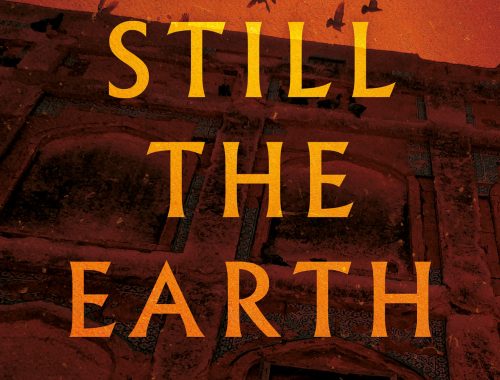Becoming Jane Eyre
 The year is 1846. In a cold parsonage on the gloomy Yorkshire moors, a family seems cursed with disaster. A mother and two children dead. A father sick, without fortune, and hardened by the loss of his two most beloved family members. A son destroyed by alcohol and opiates. And three strong, intelligent young women, reduced to poverty and spinsterhood, with nothing to save them from their fate. Nothing, that is, except their remarkable literary talent. So unfolds the story of the Brontë sisters. At its centre are Charlotte and the writing of Jane Eyre. Delicately unraveling the connections between one of fiction’s most indelible heroines and the remarkable woman who created her, Sheila Kohler’s Becoming Jane Eyre will appeal to fans of historical fiction and, of course, the millions of readers who adore Jane Eyre.
The year is 1846. In a cold parsonage on the gloomy Yorkshire moors, a family seems cursed with disaster. A mother and two children dead. A father sick, without fortune, and hardened by the loss of his two most beloved family members. A son destroyed by alcohol and opiates. And three strong, intelligent young women, reduced to poverty and spinsterhood, with nothing to save them from their fate. Nothing, that is, except their remarkable literary talent. So unfolds the story of the Brontë sisters. At its centre are Charlotte and the writing of Jane Eyre. Delicately unraveling the connections between one of fiction’s most indelible heroines and the remarkable woman who created her, Sheila Kohler’s Becoming Jane Eyre will appeal to fans of historical fiction and, of course, the millions of readers who adore Jane Eyre.
This story is the fictionalised interpretation of biographical events in the life of Charlotte Bronte. I didn’t know much about the family other than the obvious; they wrote wonderful books! So it was of interest to me to learn more about them and it is always fascinating to see how their own lives have affected the authors writing and that is definitely highlighted in this novel. The only thing, of course, is that you have to remember that this is someone else’s ideas about the characters thoughts and feelings and not those of Charlotte herself. Shelia’s writing really draws you in and her interpretation of what happened in Charlottes life, how it affected that and how it shows up in Jane Eyre pulls you in and is incredibly plausible.
We begin Charlotte’s story as she starts writing the novel, her pen scratching on the paper as her father lies unable to move waiting to see if he will recover from an operation to restore his sight. As Charlotte nurses him she reflects on her life thus far and finds it in herself to write as she never has before.
Shelia takes us on a voyage through Charlotte’s life and as Charlotte spent a lot of time at home this gives a fascinating exploration of family relationships, especially difficult ones. It is clear that Bramwell is the favourite of the family, especially his father. Bramwell has had all the chances, privileges and opportunities and yet wastes his life and his talent on drink and drugs. How difficult must this have been for his talented and yet ignored sisters. Even more so as they have to care for him and clear up his mess, often literally.
Caring for her father whilst feeling he despises her is an incredible burden for Charlotte. He did not care for her when she was young, when her Mother died or when she was being looked after by another woman who only cared for Bramwell. His distance and discouragement make it even harder for her to write and yet his illness gives her this opportunity that produces literary gold.
That her Father did nothing for her or her sisters also highlights the plight of women in that society. The suffocation that must have been felt by Charlotte and her sisters as they are chastised and criticised must have been immense. In particular as they were writing women and authorship was a man’s world, to say the least. As Shelia points out later in the novel it must have been so degrading for Charlotte to have been called ‘Jane Eyre’ by Thackery himself. In addition how devastating it was for Charlotte to have her manuscript rejected when her two sisters had works accepted, even more so as she considers herself the better writer.
Charlotte has had some independence and life experience at school and as a teacher. She falls for, and is led on by, her Master. He is a married man and as a reader you become increasingly aware of how dependent girls were in the men in their lives for survival, either at home or in the workplace, being a Governess must have been a particularly difficult role sometimes. The Master’s treatment of Charlotte and her passion for him seems to have greatly informed her writing of Jane Eyre.
Through the whole novel there is a darker edgier side shown to Charlotte’s life and it clearly demonstrates her possible inspiration; lovers rejection, fires, secrets in the attic. This is when it became easy to forget this is a kind of fiction, not all factual. But as these events are documented in Charlotte’s life, drawing the parallels is easy.
Towards the end of the story there are some big events in Charlotte’s life that get somewhat skimmed over; the death of her two sisters and Charlotte’s own marriage almost form an epilogue to the main body of the story.
Verdict: I thought this was a beautifully written story with an enthralling take on the life of a woman behind one of the greatest stories ever written.
Reviewed by Helen


